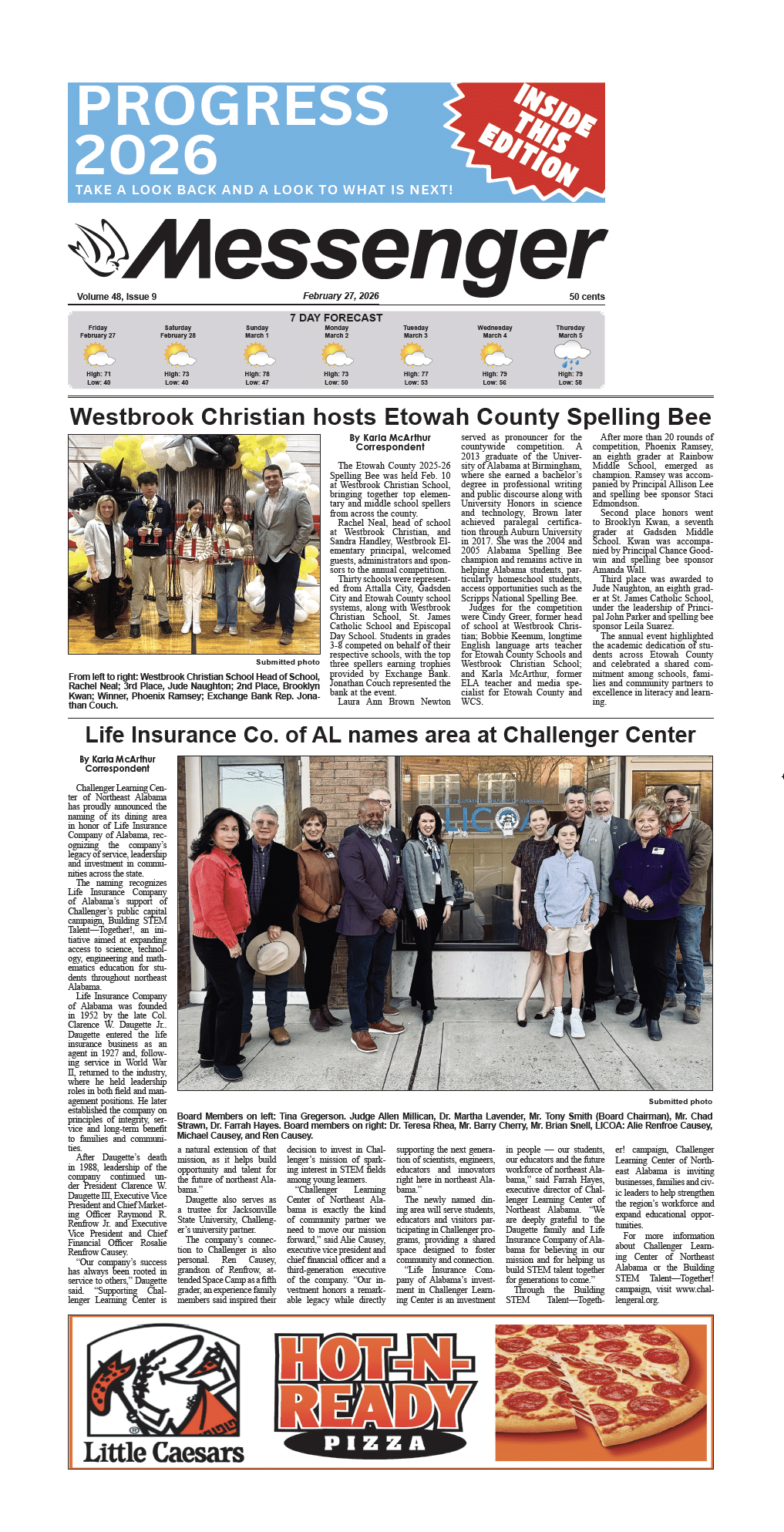By Craig Ford
Americans don’t care for monopolies. We value competition and understand that unchecked control can quickly distort the market and the product being delivered. Look no further than what’s happening in the tech industry today.
But there is another highly consolidated industry causing harm to the American people. A 2019 GAO study found that in 43 states, the top three insurers controlled at least 80 percent of the large group employer market, and in 37 states the largest three insurers controlled at least 80 percent of the individual market as well. While elected officials debate the effects of Big Tech, they overlook the clear abuses by the country’s largest health insurers. In Alabama, Blue Cross Blue Shield of Alabama (BCBSAL) has captured 94 percent of the large group market for health insurance and undermined democracy, transparency and accountability.
Since 2013, BCBSAL has been involved in an antitrust lawsuit for using its monopoly power to reap above market prices and accused of violating antitrust laws to keep their competition from entering the health insurance market, resulting in inflated prices for consumers. BCBSAL has controlled 94 to 93 percent of the market in Alabama for the past five years. Meanwhile, costs for Alabamians continue to rise.
In Alabama, in between 2010 and 2018, total out-of-pocket healthcare costs in Alabama rose 85 percent. In just the past two years, deductible growth in Alabama outpaced the national average by nearly 10 percent. Meanwhile, Alabama is ranked second-to-last in a state by state index of health outcomes. Alabamians are paying more to be sicker than the rest of the country.
In the wake of 13 hospitals closures since 2010, many in Alabama struggle to receive the medical care they desperately need. In a 2018 survey, Alabamians’ identified access to health services as their number one concern. Since 2010, 13 hospitals have closed in Alabama, and many cite low and inadequate reimbursements as the cause. In 2009, United Surgical Assistants were forced to close its doors because BCBSAL refused to pay their physician assistants. The former vice president said, “the contract [BCBSAL] offered us is a going-out-of-business contract.”
Studies quantify what we all know – when a hospital closes, it affects the entire community. This is especially true in rural areas, where 41 percent of Alabamians live. When a hospital closes, on average, per capita income is reduced by four percent and the unemployment rate increases by about two percent. This means people are forced to travel farther when facing a potentially life-threatening emergency. Ultimately, the decreased economic activity causes many people to move to an area with more readily available medical services.
A former CEO of a Birmingham area hospital gave further insight into how BCBSAL abuses its power. In this case, instead of covering the full cost of care for patients requiring neurological implants, BCBSAL covered only the hospital stay associated with the procedure, leaving patients to pay for the implant itself. If patients cannot afford the implant, the hospital is left with the bill. Medical implants can top $20,000. The CEO added that many other states have ‘carve-out’ provisions that pay implant costs in addition to hospital stays.
While hospitals and patients are being squeezed, how are BCBSAL executives fairing? We may never know.
Since 2015, the public no longer has access to salaries of BCBSAL executives due to a state law that originally aimed to make work papers confidential, but after ‘industry input,’ added salaries as well. Prior to the implementation of this law, questions had been raised about high executive pay and generous bonuses. From 2011-2013 top executives at BCBSAL collectively doubled their compensation. In 2013, the top 10 executives made over $1 million dollars and the CEO made almost $5 million dollars. Most other national health insurance companies must report compensation to the Security and Exchange Commission (SEC) every year, but BCBSAL is exempt because it is structured as a non-profit company.
In a perfect world, BCBSAL would be working with providers to reduce costs and create healthier communities. Sadly, it’s clear that the company is using its market share to protect its bottom-line. Alabama deserves better. It is time we take back our health care from greedy executives who are more focused on their salaries than our health.
Craig Ford is the owner of Hodges-Ford Insurance and The Messenger newspaper in Gadsden. He represented Gadsden and Etowah County in the Alabama House of Representatives for 18 years.



